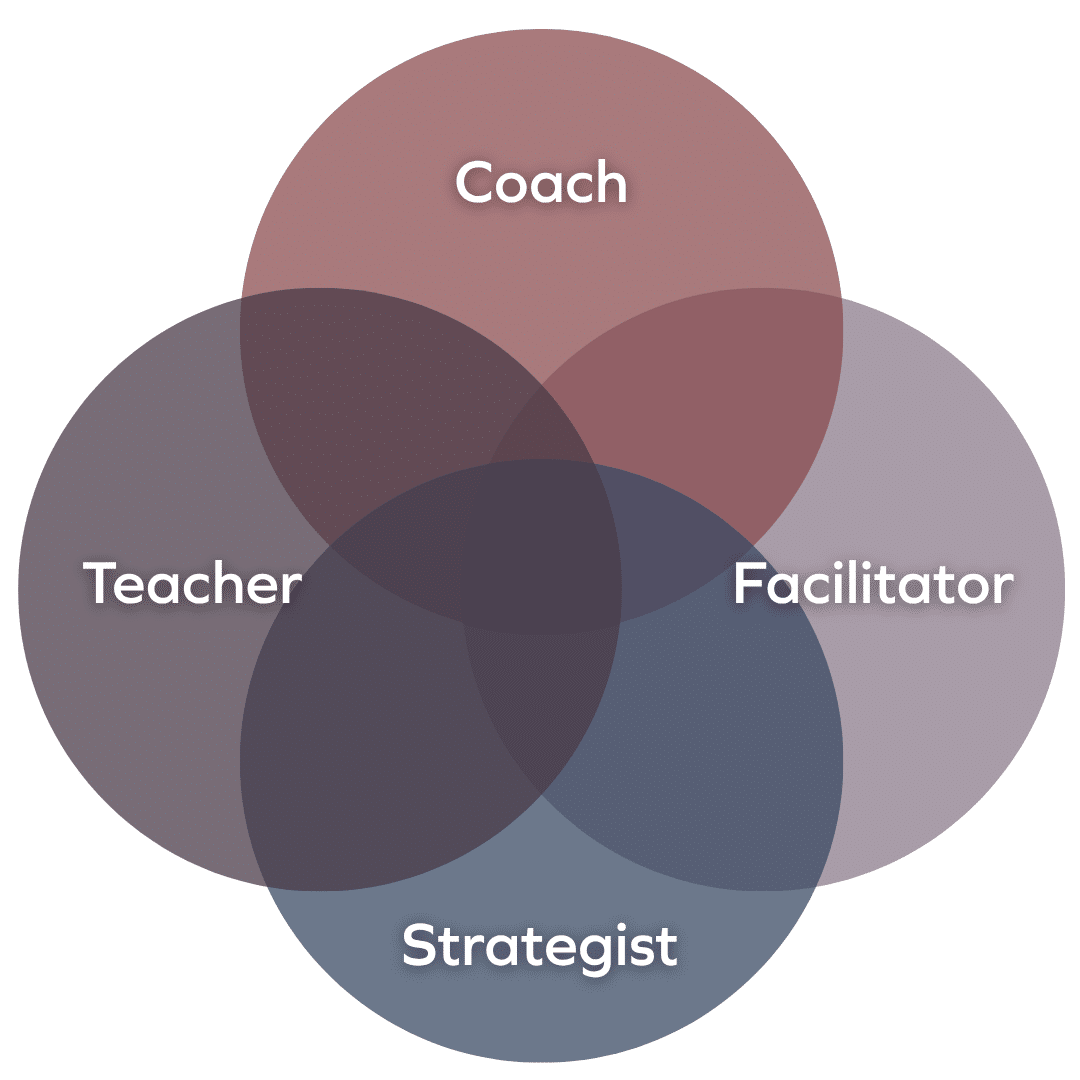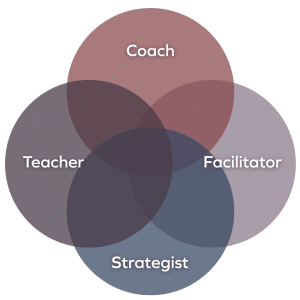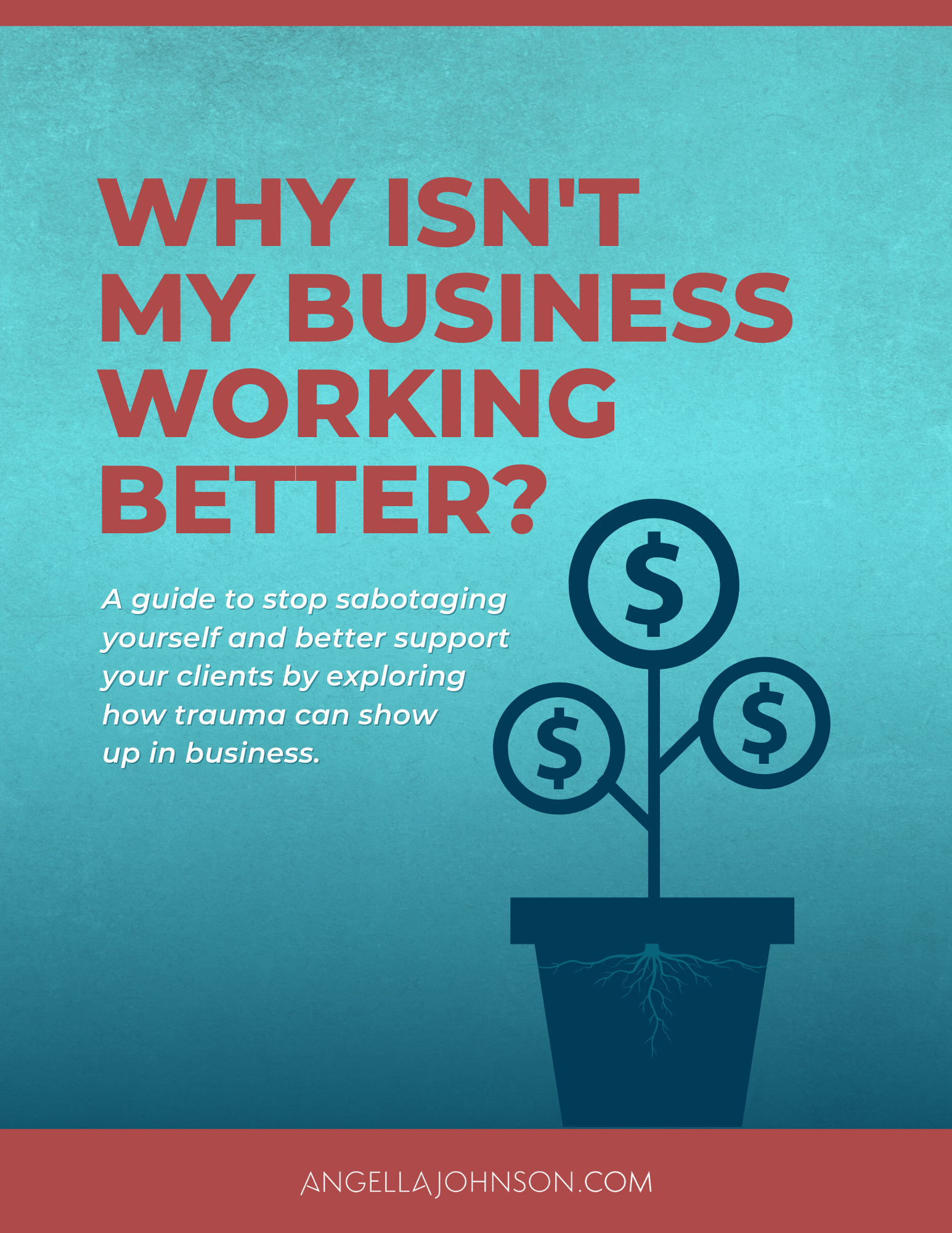What do you call yourself? Do you cringe at the word “coach?”
On my monthly Office Hours call today, there was a great question about expanding a 1:1 coaching business model alongside a group coaching model.
The skills to be a 1:1 coach are different from leading a group or community.
So often, we use a word like coach, consultant, or something even more clever because we don’t want to be generic. But embrace the basic, then add to it from there.
A Great Place to Start
When helping my clients clarify their expertise and what to call themselves, I start with these six skillsets:
Teacher – You are a subject-matter expert AND ideally have the skills to teach information so people learn. If you do a lot of speaking, teaching is likely one skill set you focus on in your business.
Coach – You have skills in asking questions and helping clients create clarity so they take action on the results they desire to create.
Done-for-you – you provide done-for-you services in a specific area or topic. This can be anything from a massage therapist to a web designer.
Facilitator – you have the skills to lead groups and create spaces that lead to transformation and clarity.
Strategist/Consultant – you provide strategy based on an area of expertise and/or a proprietary framework to drive specific results.
Therapist/Counselor – you have specific credentials and training to work with clients in a professional mental health capacity.
If you’re thinking, “But, where do I fit in within these six categories?”
This is not meant to box you in, but provide a helpful distinction when knowing what to call yourself.
For multi-passionate entrepreneurs, fitting all of our skillsets and expertise into one title feels stifling and doesn’t represent our comprehensive work.
Creating a Venn diagram can help keep you focused on work that lights you up.
Here is mine:
Why create a diagram like this?
First, it’s helpful for you to see what you do. If you use this image on your website or in your content, then that’s beneficial, too.
Second, it’s helpful for your audience to explore what each title means.
Getting specific about what you do and what your title(s) mean helps your clients and potential clients know why they want to work with you.
Let’s talk about the word “coach.”
When someone says they are a coach, I have a lot of questions (and red flags).
I’m a stickler about this because of the number of times I’ve hired a “coach” and they don’t actually coach.
So often, they gave generic advice and strategy, but didn’t have the skillset to coach me to create my unique path forward.
A business strategist may be great at mapping out the plan for a business to scale, but do they have the expertise and skills to help the client overcome mindset blocks that come along with the expanded visibility?
Your clients and audience need to know what your title means.
If you have a clever title, you gotta tell people what it means.
People have different expectations and associations with words than you do.
Words matter.
Choose them wisely and educate your clients about what your title(s) mean and how they help them solve specific problems they are struggling with.
Thanks for being here,
Angela



